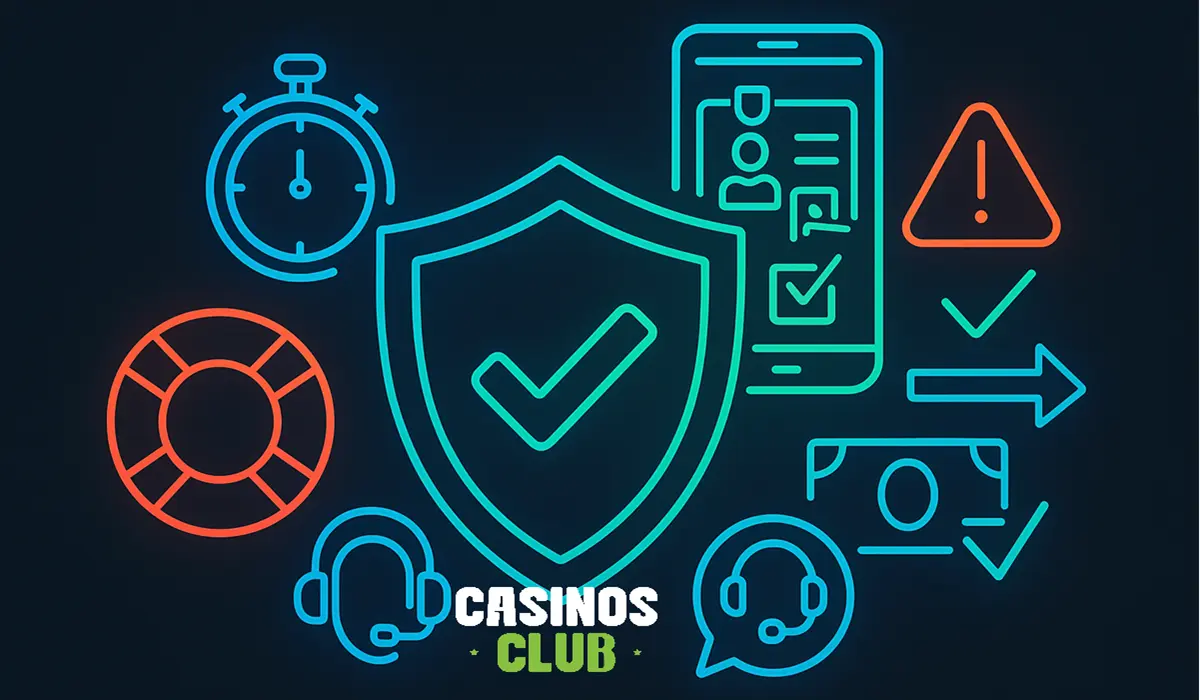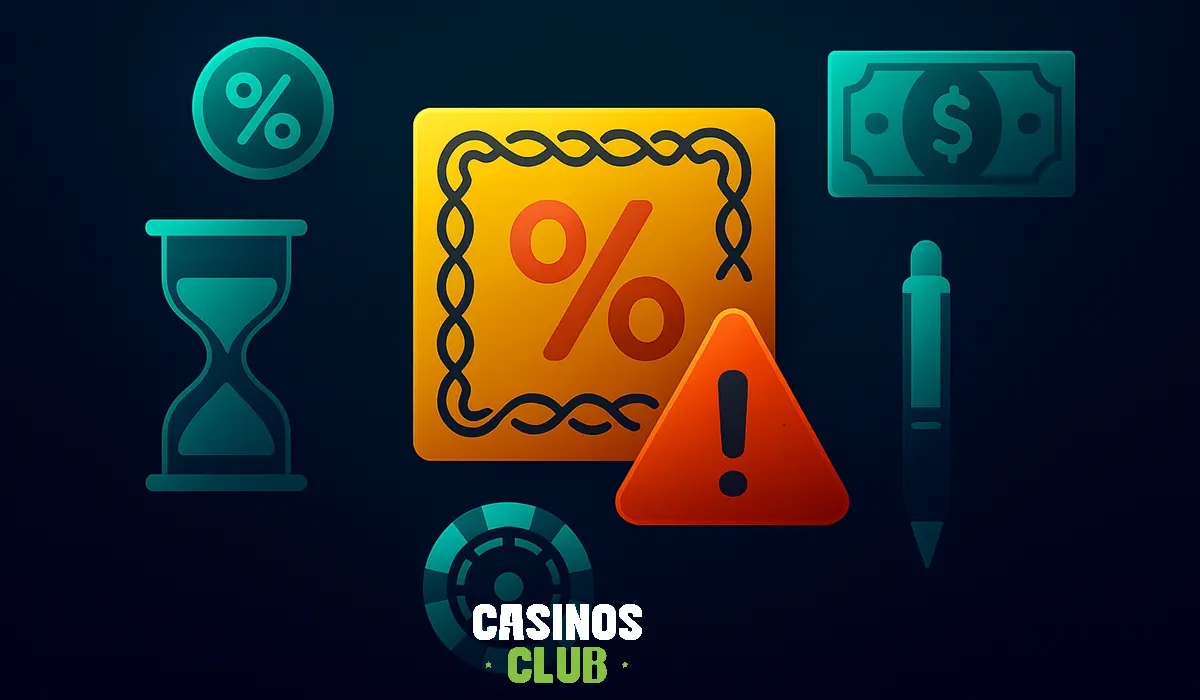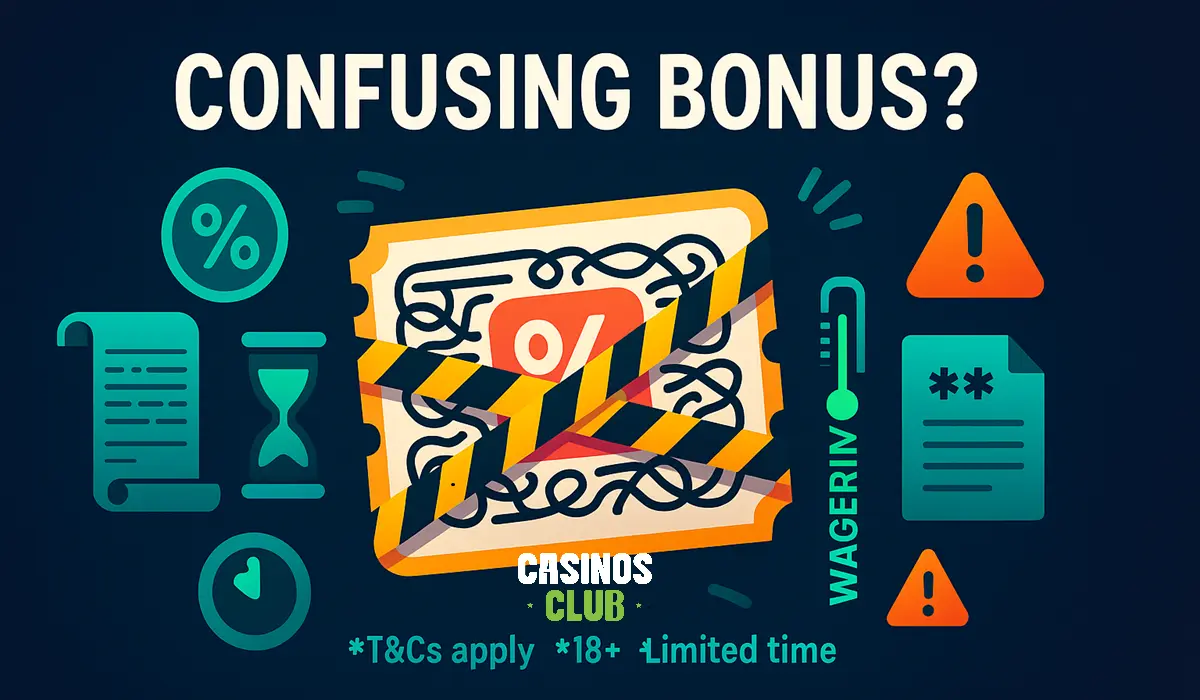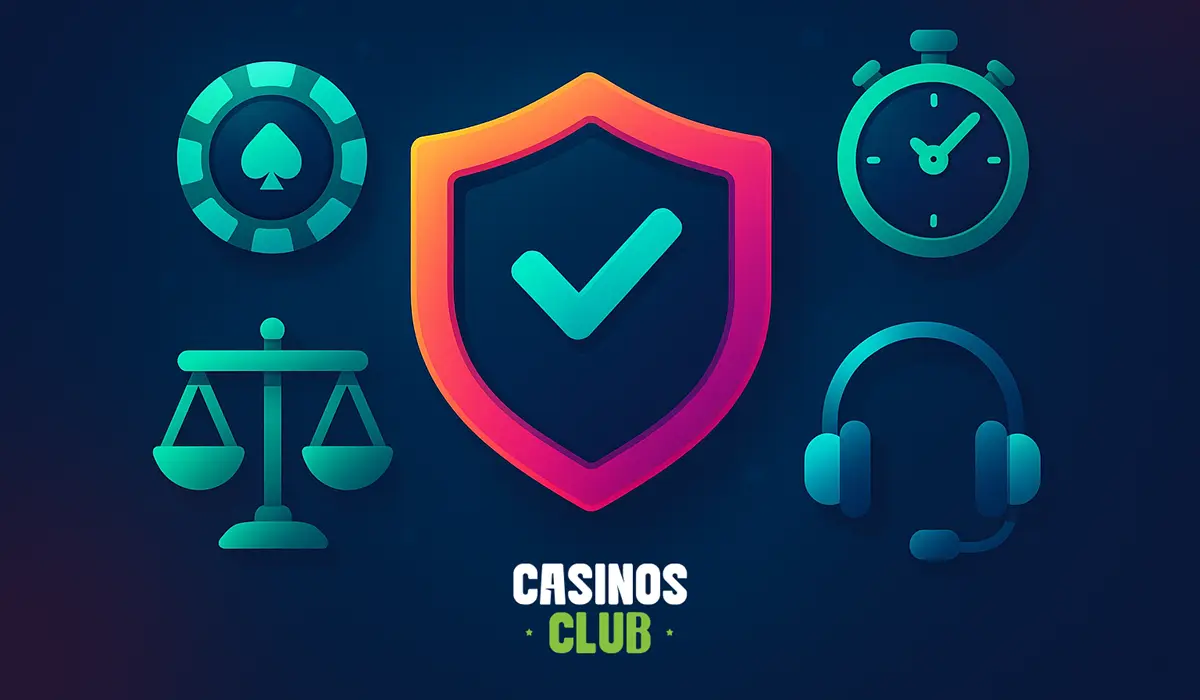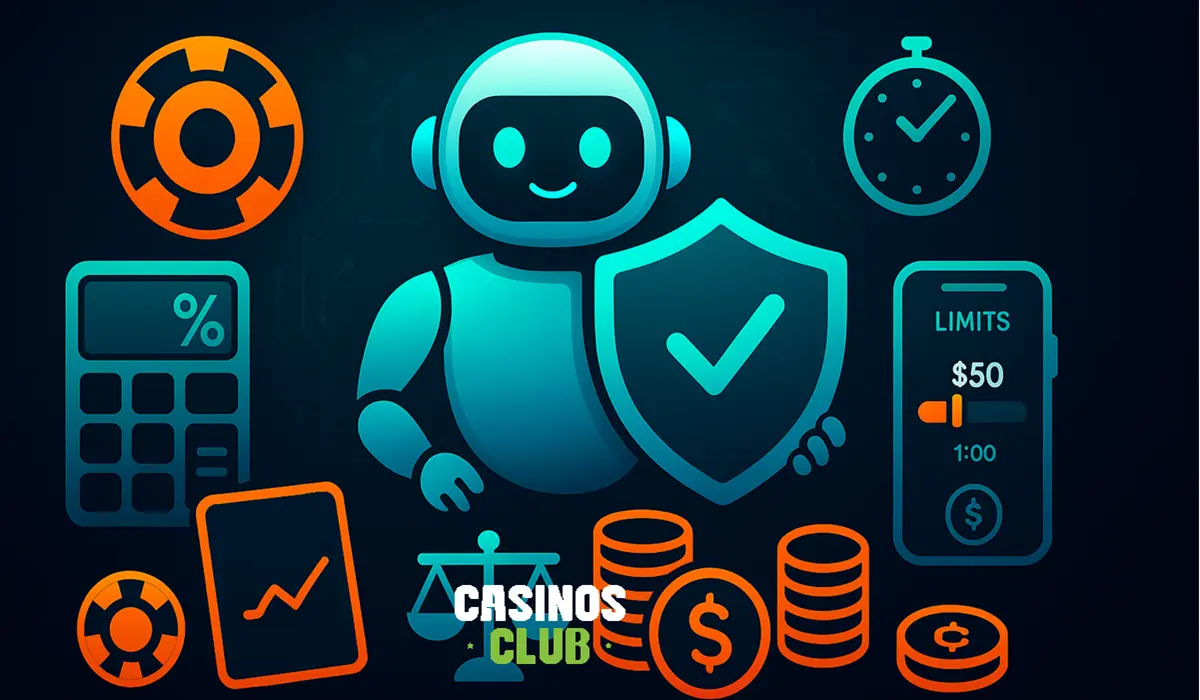
12 November 2025
AI & Player Protection: The Responsible Gambling Tools in 2025
AI & Player Protection: The Responsible Gambling Tools You’ll See in 2025
AI Responsible Gambling Tools are moving from “back-office analytics” to features you’ll actually see while you play. This guide explains what’s new in 2025, how risk detection works, and the controls you can use to keep sessions fun and affordable.
Table of Contents
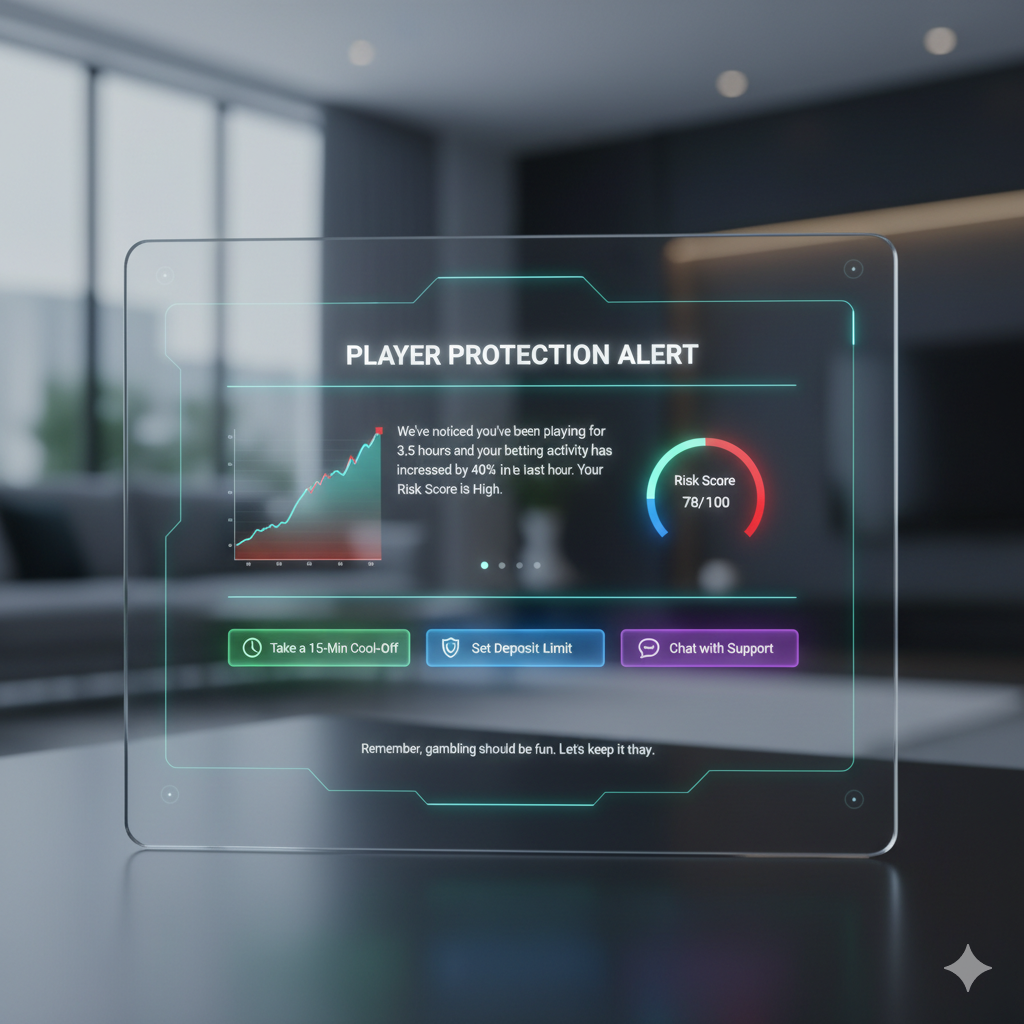
What’s new in 2025
- Real-time nudges: Session clocks, stake reminders, and pop-ups adapt to your pattern, not just fixed timers.
- Smart limits: Deposit, loss and time limits can suggest safer values based on your recent behavior.
- Proactive cool-offs: If your risk rises, the site may suggest a short break or temporarily cap stakes.
- Friction for impulsive actions: Extra confirmation steps when you raise limits or chase losses late at night.
- Clearer dashboards: Personal “play history” with spend/time visuals and quick toggles for limits.
How AI detects risky play
Risk models look for behavioral markers that can signal loss of control. No single signal equals harm; models weigh groups of signals over time.
- Time & frequency: very long sessions, rapid return after losses, playing at unusual hours.
- Spend patterns: quick top-ups, raising stakes after a loss, moving from small to large bets.
- Product switching: jumping to higher-volatility games after losses.
- Limit behavior: frequent attempts to raise or remove limits.
- Cash-out habits (sports): panic cash-outs or chasing parlays after losses.
When a risk threshold is reached, the site triggers an intervention: a nudge, a recommended limit, a short cooling-off, or a prompt to speak with support.
On-site tools you’ll notice
- Personalized session pop-ups: “You’ve played 60 minutes. Consider a 15-minute break.”
- Smart deposit/loss limits: Sliders suggest values aligned to your average spend.
- Time-out & self-exclusion: One-click 24-hour cool-offs and longer exclusions.
- Stake caps (high-volatility titles): The site may cap max bet after rapid losses.
- Spend & time dashboards: Weekly/monthly views, category breakdowns, trend arrows, and alerts.
- Safer game recommendations: Prompts to choose lower-volatility alternatives if you’ve had a rough session.
- Human help routing: Fast hand-offs to live support or RG specialists when needed.
Data, privacy & transparency
Modern RG systems try to balance safety and privacy. Expect clearer notices explaining what signals are used, how long data is stored, and who can access it. You can usually opt-in to extra data features (like email summaries) and opt-out of non-essential tracking. If you’re unsure, open live chat and ask for the RG policy or privacy summary in plain language.
How to take control
- Set deposit, loss, and session limits before you play. Keep a snapshot of your choices.
- Enable session reminders (every 30 or 60 minutes).
- Use cool-offs after a tough session; don’t wait for prompts.
- Check the history dashboard weekly; lower limits if trends worry you.
- Bookmark the site’s Responsible Gambling page and regional helplines.
Quick reference tables
| Signal example | What it may mean | Typical intervention |
|---|---|---|
| Multiple deposits in minutes | Chasing losses | Deposit limit suggestion; cool-off prompt |
| Very long session at night | Fatigue, reduced control | Break reminder; session cap; stake cap |
| Raising stakes after losses | Escalation risk | Nudge + cap; link to set loss limit |
FAQ
Will AI block my account without warning?
Most sites start with nudges and optional limits. If risk remains high, they may introduce temporary restrictions or request a cool-off. You will see messages explaining why.
Can I turn off all RG prompts?
You can often customize reminders, but core safety features (like self-exclusion and certain checks) are required by license rules and can’t be disabled.
Does AI see my private financial data?
Sites analyze play patterns (time, stakes, deposits/withdrawals). If extra documents are needed for affordability or identity checks, they’ll ask for consent and explain why.
Play safely
Set limits before you start, take regular breaks, and only gamble with money you can afford to lose. Need help or more detail? Visit our Responsible Gambling page.







